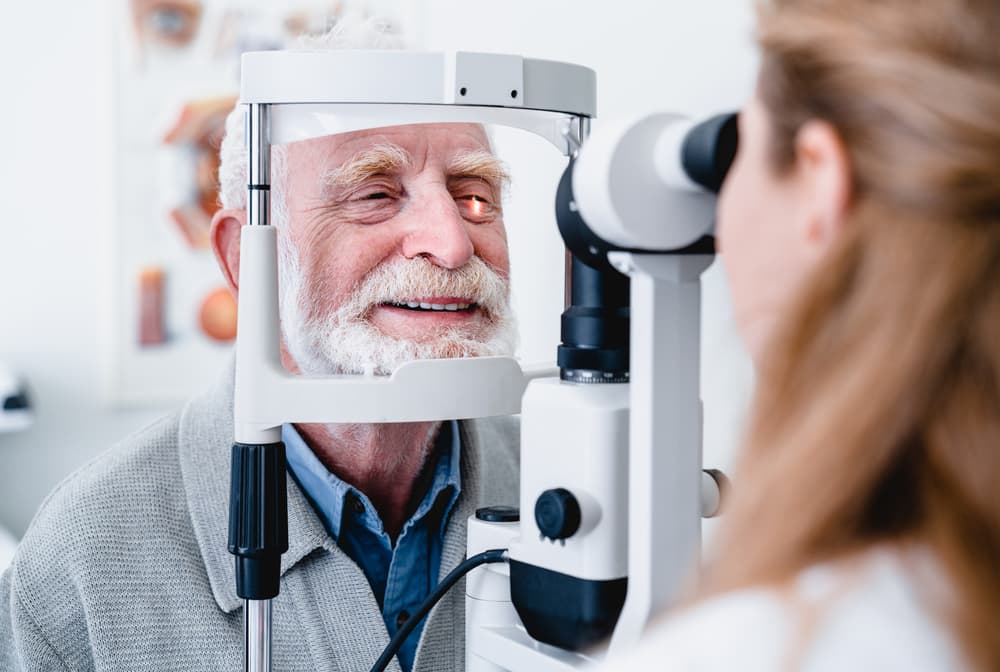At Cookeville Eye Specialists, we are dedicated to providing comprehensive care for those with glaucoma, a group of eye conditions that can lead to vision loss if left untreated. With our experienced team of eye doctors and advanced treatment options, we strive to offer personalized glaucoma management to preserve and protect your precious vision.
Glaucoma is a group of eye conditions that can cause damage to the optic nerve, leading to vision loss if left untreated. The optic nerve is responsible for carrying visual information from the eye to the brain.
Glaucoma is often associated with high pressure inside the eye, known as intraocular pressure or IOP, but it can also occur with normal or even low IOP. The most common type of glaucoma is called primary open-angle glaucoma.

In this form, the drainage canals within the eye become less efficient over time, leading to a gradual increase in IOP. This increased pressure can damage the optic nerve and result in vision loss, typically starting with peripheral vision and progressing to central vision if left untreated.
Other types of glaucoma include angle-closure glaucoma, which occurs when the drainage angle of the eye becomes blocked, causing a sudden increase in IOP. There is also secondary glaucoma, which is caused by other eye conditions, trauma, inflammation, or certain medications.
Glaucoma is often referred to as the “silent thief of sight” because it usually progresses slowly and painlessly, without obvious symptoms in the early stages. Regular eye exams are crucial for early detection and treatment. Early diagnosis and intervention are key to managing this condition effectively.
Glaucoma, in its early stages, typically doesn’t cause noticeable symptoms. This is why regular eye examinations are crucial for detecting the condition. However, as glaucoma progresses, certain symptoms may manifest, depending on the type of glaucoma. Gradual loss of peripheral vision is one of the primary signs. This may go unnoticed initially as the central vision remains intact. As glaucoma continues to damage vision, your field of vision may narrow, resembling looking through a tunnel.
Angle-closure glaucoma, although less common than open-angle glaucoma, can cause many apparent symptoms and rapid vision loss. The most common sign of this type of glaucoma is eye pain accompanied by headaches, blurred vision, and even nausea or vomiting.
You may also notice a sudden vision disturbance, like blurriness, halos around lights, or a hazy vision. It’s important to note that these symptoms can also be associated with other eye conditions, so consulting your eye doctor at Cookeville Eye Specialists is essential for an accurate diagnosis.
Glaucoma treatment aims to manage the condition and prevent further damage to the optic nerve. The specific treatment approach depends on the type and severity of glaucoma, as well as individual patient factors.
Here are some common treatment options:
Prescription eye drops are often the first line of treatment for glaucoma. These drops work by either reducing the production of fluid or improving its drainage from the eye, which lowers IOP. It’s crucial to follow the prescribed dosing instructions and use the drops consistently to maintain effective IOP control.

MIGS procedures have emerged as a less invasive surgical option for glaucoma management. They involve implanting small devices or using microstents to enhance the eye’s natural drainage pathways. Some examples of MIGS procedures include OMNI, Hydrus, iStent, and Xen.
In cases where eye drops or MIGS procedures are insufficient, traditional glaucoma surgeries may be recommended. Trabeculectomy and tube shunt surgeries are examples of these procedures. They involve creating new drainage channels to divert fluid and lower IOP.
Durysta is a sustained-release bimatoprost implant that is inserted into the eye. It continuously releases medication over several months, reducing IOP and providing long-term control. The choice of treatment depends on various factors, including the severity of glaucoma, patient preferences, and the eye doctor’s recommendation. Regular follow-up visits are crucial to monitor the effectiveness of treatment and make any necessary adjustments.
It’s important to work closely with your eye doctor at Cookeville Eye Specialists in Cookeville, Tennessee, to determine the most appropriate treatment strategy for individual cases of glaucoma.
Are you experiencing symptoms of glaucoma? Schedule an appointment at Cookeville Eye Specialists in Cookeville, TN, today!
Retina health is crucial for clear vision and overall eye function. At Cookeville Eye Specialists, our team focuses on understanding the intricacies of retinal health to ensure the best possible outcomes for our patients’ vision and overall eye health.
The retina is a layer of tissue located at the back of the eye that plays a crucial role in vision. It is responsible for capturing light and converting it into electrical signals the brain can interpret to form images.

When light enters the eye, it passes through the cornea and lens before reaching the retina. The retina is a complex and delicate structure, and any damage or changes within its cells or layers can lead to visual issues and conditions. Regular eye examinations are essential to detect and address any retinal issues early on.
Several eye conditions can affect the retina. Some of the most common ones include:
This progressive condition affects the macula, the central part of the retina responsible for detailed central vision. Macular degeneration is a leading cause of vision loss, particularly in older adults.
Diabetic retinopathy is a complication of diabetes that occurs when high blood sugar levels damage the blood vessels in the retina. This can lead to vision loss if left untreated.
This occurs when the retina separates from the underlying tissue. It can be caused by factors such as trauma, aging, or underlying eye conditions. Retinal detachment is considered an emergency situation that requires immediate medical attention to prevent permanent vision loss.
These are often caused by the vitreous gel inside the eye pulling on the retina. If left untreated, retinal tears and holes can progress to retinal detachment.
Conditions such as retinal vein occlusion or retinal artery occlusion occur when the blood flow to the retinal vessels is blocked, leading to vision loss in the affected area. These are just a few examples of the eye conditions that can affect the retina. Early detection and treatment are crucial for managing these conditions and preserving vision.
Certain retinal conditions can be inherited within families. However, it’s important to note that not all retinal conditions have a hereditary basis. Sometimes, genetic abnormalities can be passed down from parents to their children, resulting in a higher chance of developing the retinal condition. Retinal disorders can also arise without a family history of the condition. Age, lifestyle choices, and environmental influences can also contribute to developing retinal conditions.

If you are experiencing any issues with your vision or notice changes that concern you, it is essential to visit your eye doctor. If you notice sudden changes in your vision, such as a sudden increase in floaters, flashes of light, or a curtain-like shadow across your visual field, it is important to seek immediate medical attention.
Those with diabetes should have regular eye examinations to monitor for diabetic retinopathy. The frequency of examinations can be determined based on the severity of diabetes.
A family history of retinal conditions or hereditary eye diseases may also warrant regular screenings. Your eye doctor can assess your specific situation, conduct necessary tests or procedures, and provide options to preserve your vision and optimize your eye health.
Are you experiencing changes in your vision? Schedule an appointment at Cookeville Eye Specialists in Cookeville, TN, today!
Refer a patient today and make a positive impact on their health journey with our convenient and user-friendly patient referral form below
Patient Referral Form1125 Perimeter Park Dr.
Suite 200
Cookeville, TN 38501